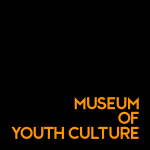
The Boat That Rocked The Election
Text by William Fitzgerald | 16.09.2022
Pirate radio stations have a long tradition in British youth culture, from the boats moored in international waters in the 1960s, to Jungle stations perched on inner city tower blocks. Amongst the most legendary of the
early pirate radio stations, Radio Caroline is remembered for giving sixties youth a soundtrack to the decade. Today, pirate radio is celebrated in media such as the 2009 Richard Curtis film The Boat That Rocked, however what is often overlooked is the influence pirate radio, or ultimately the lack thereof, had on the political sphere.
In 1964, artist manager Ronan O’Rahilly became increasingly frustrated that the popular pop and rock acts of the time were not being given airtime on BBC Radio. Turned away again and again, in true DIY spirit O’Rahilly decided to start his own radio station. Converting an old ferry and mooring off the East coast, Radio Caroline was born on 28th March 1964 This is Radio Caroline on 199, your all day music station. Named after President John F Kennedy’s daughter, O’Rahilly had seen an image of the young girl in a magazine, crawling under the desk in the oval office during a meeting. Rather than send her out of the room, President Kennedy played with her - Caroline was playful and disruptive, the exact things O’Rahilly believed his
radio station could be.
What started with the need to get new music heard ended up effectively putting to an end the BBC’s radio monopoly, with some estimates suggesting that as many as 22 million people listened in on Sunday mornings alone. Radio Caroline emerged in a time of individualism, rebellion, and liberation, as pop and counterculture swept through Britain. Exciting new bands like The Beatles, the Rolling Stones and the Kinks came to define the Swinging Sixties. Even in this climate, many pre-war societal ideas remained. In this way, radio mirrored wider life’s apparent contradictions. Though Lennon, Jagger, Davies and those alike sang about living without boundaries, the institutions that controlled the music’s outreach dampened the message. The BBC, for example, rationed this new age pop to a few hours a week on the Light Programme. Radio Caroline, however, was not for the dampening of the new voice, instead it became a centrepiece for youth-led music.
In an interview for BBC Radio 1 on 26 th January 1974, Ronan O’Rahilly stated:
It was part of the revolution… It was the realisation …it was a little ship and a bunch of young people doing it against the entire sort of forces of the establishment.

The threat radio stations like Radio Caroline posed was not the way in which they broke the law in itself, but in the ways it challenged the social norms of post-war Britain. Pirate radio was unapologetically different and
rebellious, it was a middle finger to the elites who rebuked against the changing times. As the popularity of Radio Caroline and other pirate ships grew, the government introduced The 1967 Marine Offences Act which
provided criminal sanctions for any UK company or citizen promoting or working for pirate radio stations and aimed to put an end to the musical anarchy.
Whilst other radio stations closed down and DJs joined the newly founded BBC Radio 1, Radio Caroline moved further afield into Dutch waters. Now to be known as Radio Caroline International, the station continued to
operate, defiantly playing a rendition of the civil rights anthem We Shall Overcome.
In 1970, Radio Caroline changed its name once more, to Radio North Sea International, and made the bold move to return to Clacton where many of the 60s pirates had operated before the law change. Amid allegations that the radio broadcasts were interfering with coastal communications, on Wednesday 15th April the government started to jam the radio, a tactic not even used in wartime Britain. The Labour party of the 1960s that ended censorship of theatres, legalised abortion, passed the Race Relations Act and partially decriminalised homosexuality, came to be seen by some as a party of oppression.
As ever, O’Rahilly decided to fight back, launching a campaign in support of Edward Heath’s Conservative Party in the run up to the 1970 General Election. Events and campaigns came to a head in a march on Downing
Street, with banners showing Harold Wilson’s face imposed onto President Mao’s body and protesters chanting an adapted version of the Dad’s Army theme song; ‘Who do you think you’re kidding Mr Wilson if you
think free radios down’.

It is hard to conclude the extent to which pirate radio and the protests contributed to the Conservative win. For example, some suggested that England losing to West Germany only four days before the election changed the general mood of the people, putting forward an alternative history ‘if Gordon Banks played’ and suggesting that if the England goalkeeper had played Harold Wilson would have in fact remained.
However, with the fact that in 1969 the voting age had been lowered from 21 to 18, all the former and current pirate radio listeners were now old enough to vote against the party who repressed free speech in the form of
Radio Caroline. If many of them did vote for Heath for this reason, they were let down. The Conservatives did introduce commercial radio but did not stop the jamming. Radio North Sea International eventually joined
commercial radio in 1973 and Harold Wilson returned as PM in 1974. Perhaps an underwhelming end to the anarchist story of pirate radio.
Nonetheless, it remains an important if somewhat forgotten case study. It demonstrates the power of youth culture in affecting significant wider political change as a means of protecting their cultures. It shows, in the
most rebellious of ways how young people had, and continue to have, a voice.



